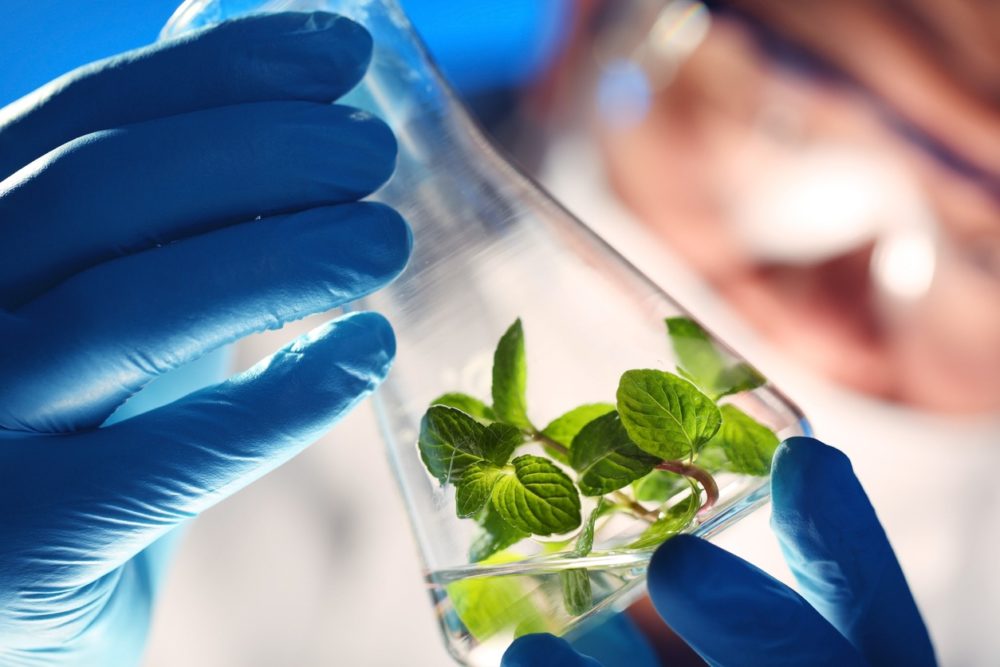Indiana-based seed tech startup Inari has closed a $89 million Series C to develop genomic tools including gene editing to improve global seed diversity. The round brings the company’s total funding to $142 million.
The company says it is the largest funding round secured by a female CEO in ag biotech startup to-date.
Flagship Pioneering, the venture development organization behind Indigo Ag, which founded Inari in 2016, backed the round alongside Dubai’s sovereign wealth fund the Investment Corporation of Dubai, Asian-based global investor EDBI and agri-foodtech VC Acre Venture Partners.
Except Acre, the make up of the investor base is similar to Indigo: large institutional investors with little-to-no agriculture exposure.
The announcement follows last week’s $33 million top-off round by Benson Hill Biosystems, a similar but longer-standing computational biology and genomics startup that closed its Series C at $97 million.
Inari believes its technology is unique in that it enables the company to uncover the enormous and largely untapped potential of seeds’ natural diversity, helping to reverse seed industry practices of the last 150 years, which have largely focused on increasing yield only.
“When you ask only one question, you only work toward one answer. In this case, it was yield. Diversity is good for disease tolerance, water consumption, nutrition, and nitrogen consumption,” Inari CEO Ponsi Trivisvavet tells AFN.
For a genetically modified crops in particular, common technologies are designed for one gene and focus on a foreign gene rather than exploiting a crop’s natural diversity.
“[Inari’s] genomic tools essentially allow us to bring back genetic diversity, which is very helpful for us to create seeds that are better for the environment by taking less water, pesticide, and land,” she told AFN. “The computational piece allows us to understand the complexity of genomes within the crop. Most crops are more complex than humans.”
The new round of capital will be used to further its computational and genomic tools, as well as accelerating the commercialization and introduction of its corn and soybean seeds in the US market. Within the next two years, Inari plans to expand into other crops.
“We are technology agnostic. Some of the tools we use we call ‘digital crosses.’ They use the computational piece, and we cross them in a more efficient way. We also use gene editing and epigenetic gene expression,” she says.
Inari does not work with foreign gene material, allowing it to skirt regulations in most countries, including the US.
Weedy route-to-market
In an industry where a handful of companies control most assets and distribution channels, the route to market for a new seed tech startup can be stymying. Inari has chosen to partner with independent seed producers. These relationships assist the company in understanding farmers’ needs while offering seed companies and growers an opportunity to help shape the innovation.
More importantly, the independent seed dealers are crucial gatekeepers to Inari’s target customer base.
“We believe that independent seed companies have the best relationship with growers,” she explains. “I grew up in the industry and, in many cases, growers stay with the same dealer for three generations. The level of trust they have with the farmers is not something we would be able to create overnight, but we can build on what they’ve already created.”
And while many startups scourge the idea of competition, Inari has a more holistic view of the seed sector and its need for more innovators trying to get better seeds into farmers’ hands.
Entering the genetics market is difficult, however. First, it takes significant startup capital to build new technology. Second, the market is dominated by two companies, which “gives little encouragement to anyone who wants to come in and challenge them,” Trivisvavet explains, referring to Bayer and DowDuPont’s newly spun-off division, Corteva Biosciences.
“Stagnating innovation in the seed industry has led to industry consolidation and more limited choice for growers,” Robert Berendes, executive partner at Flagship Pioneering, said in Inari’s funding announcement. “This makes it ripe for disruption from both a technology and business standpoint.”
Seed tech sprouts
Commodity crop growers are struggling with low prices, trade wars, climate change and other factors that compel them to seek new options for improving their margins. Given the massive size of the global row crop industry, the opportunity to make big money from little seeds is staggering.
Spotting this opportunity, investors are pouring hundreds of millions of dollars into the seed tech industry, backing everything from genetically modified seeds to microbial seed coatings. Some of the more prominent players who have raised funding or closed new partnerships include:
Microbial seed coating tech company Indigo Ag, which focuses on row crops, raised a $250 million Series E round last year; crop genomics platform Benson Hill Biosystems recently acquired Iowa-based eMerge Genetics, known for its high-yield, high-protein non-GMO soybean varieties; Precision Biosciences’ food-focused subsidiary Elo Life Systems, which is developing food crops with nutritionally-improved characteristics via its ARCUS technology system; and Israeli computational biology startup Equinom, which is breeding crops with improved characteristics without any genetic manipulation have both raised funding from venture capital.
Ag bioscience is even infiltrating the cannabis sector. Canopy Rivers recently invested $10 million in plant science venture ZeaKal, which developed a genetics-based technology that boosts plants’ capacity to convert sunlight and carbon dioxide into energy.
For Inari, its farmer-centric approach may be the secret sauce to shaking things up in the seed industry. As the outfit prepares to commercialize its first US offering, the company is doubling-down on its public education efforts.
“It hasn’t been a challenge yet, but we want to make sure the broader public understands the benefit of this technology, which is that it allows us to really address the whole environmental issue,” Trivisvavet says. “Everything we do is natural. It happens naturally with normal breeding processes. We just do it in a faster way.”





